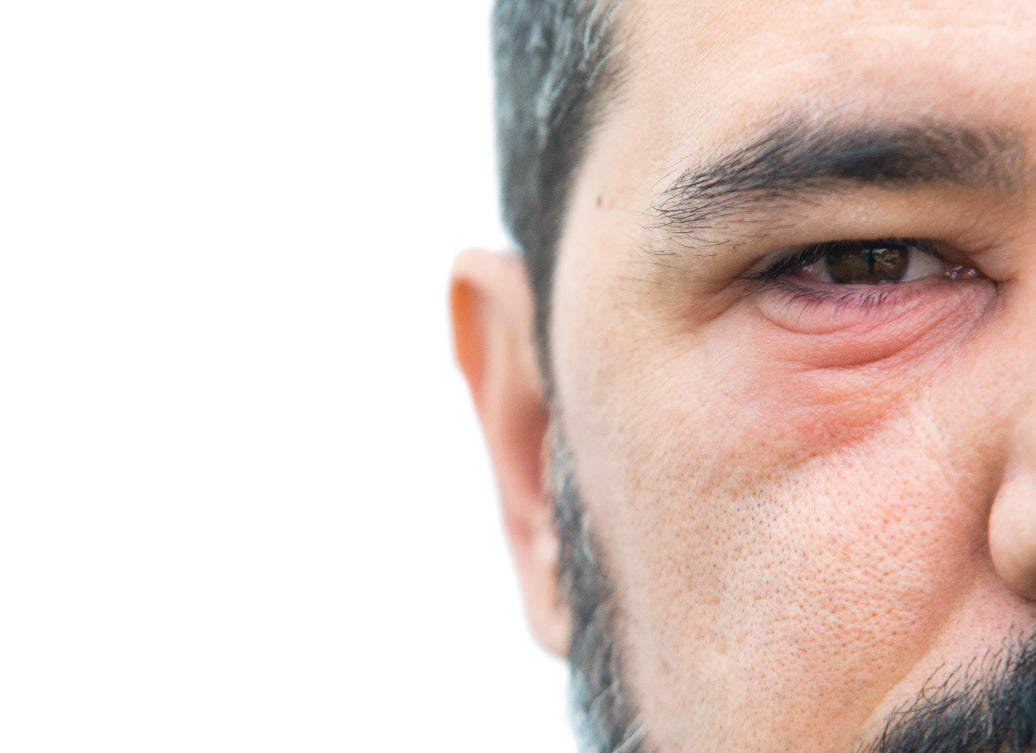It can make your eyelids inflamed, weepy and uncomfortable, but is blepharitis as infectious as it looks?
What is blepharitis?
Blepharitis is a chronic inflammatory condition that affects the eyelids. It’s a fairly common condition, and isn’t usually serious, but it can be very uncomfortable, causing eyes to feel itchy, gritty, sore and dry.
Symptoms include dry or watery eyes, bloodshot eyes, crusty eyelashes, a stinging sensation, the feeling of grittiness in the eyes, and itchy, swollen eyelids.
Blepharitis is a chronic condition, meaning it tends to come and go in waves, with sufferers experiencing repeat flares, although sometimes with months or years between attacks. It’s unlikely to ever go away completely, although there are some effective ways you can reduce the severity and frequency of flares.
Luckily, blepharitis is not considered contagious.
Even though some blepharitis is triggered by the staphylococcus aureus bacteria, it isn’t an infectious disease, and you can’t catch it from anyone, or pass it on to someone else except in very unusual circumstances.
To understand why, let’s look at the root causes of blepharitis.
What causes blepharitis?
The characteristic inflammation of the eyelids is usually triggered by one of three things:
- blockages in the oil-producing glands at the base of the eyelashes
- proliferation of Demodex mites on the skin
- overgrowth of bacteria around the eyelashes
Flare ups of blepharitis are exacerbated, or made more likely, by other things, such as your overall health, an existing skin condition (particular rosacea or seborrheic dermatitis/dandruff), using makeup, especially old makeup, around your eyes, wearing contact lenses, whether you drink alcohol or smoke, and environmental conditions.
Bacterial blepharitis
Although there’s infection present, blepharitis isn’t something you would pass to anyone else, except in extremely unusual circumstances. That’s because the bacteria in question, Staphylococcus aureus, are often present on skin anyway, and mostly don’t cause any problem; it’s the circumstances in which they proliferate that causes a problematic infection. There might be a break in the skin, a wound or impaired skin barrier, or the bacteria might have got into mucus membranes, or caused inflammation by shedding toxins. Whether they cause a problem depends on the person whose skin they are on, not the bacteria itself.
Managing blepharitis
Treatment usually consists of a careful daily regime of washing the eyelids with diluted, scent-free shampoo. If there’s bacteria present and daily washing doesn't improve things, your doctor might prescribe antibiotic or steroid eye drops.
Recommended products:
Balmonds Natural Shampoo & Body Wash
with calendula & chamomile
Balmonds Skin Salvation
with hemp and beeswax
Balmonds Tea Tree Balm
balm with tea tree essential oil and beeswax
